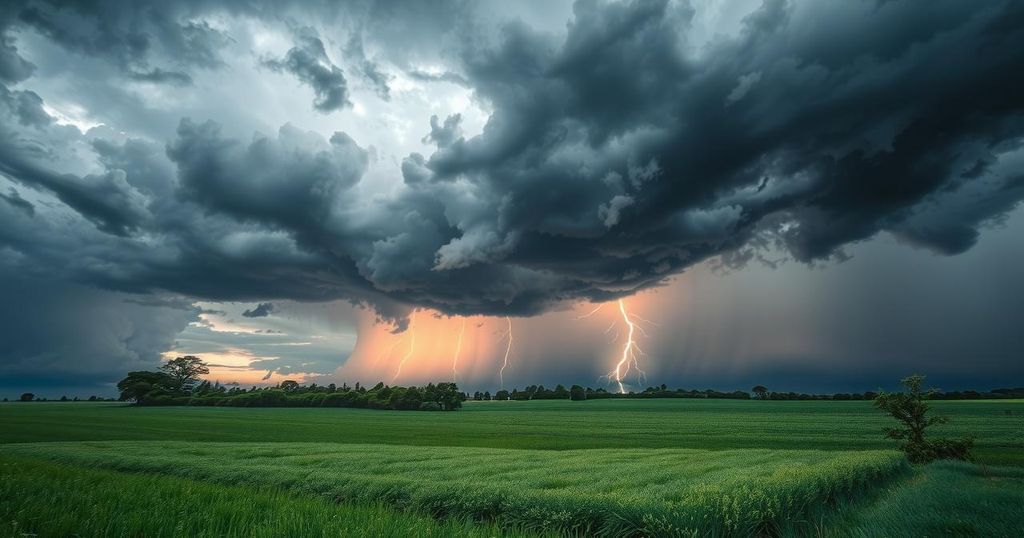Extreme Wet Weather Challenges Amplified by Climate Change in 2024

Climate change has intensified wet weather hazards globally, especially in the Global South. In 2024, record-breaking rainfall and flooding resulted in thousands of deaths, massive displacements, and severe agricultural damage. Regions like West Africa and Bangladesh exemplify the heightened vulnerability to extreme weather events linked to climate change, further escalating humanitarian crises and economic challenges.
Recent reports indicate that climate change has exacerbated the impact of wet weather, resulting in significant disruption and displacement globally. 2024 emerged as the hottest and among the wettest years, with water-related disasters claiming over 8,700 lives and affecting approximately 40 million people. Extreme weather events, attributed to climate change, have dramatically increased in intensity and frequency, presenting unprecedented challenges, particularly for the Global South.
In West Africa, heavy rains and flooding resulted in over 1,500 fatalities and forced about one million individuals from their homes. The intensity of these disasters increased by up to 20% due to human-induced climate change. The severe downpours also devastated thousands of hectares of farmland, further aggravating food security concerns across the region.
Nigeria specifically was significantly impacted, with flooding affecting four-fifths of the nation and damaging over 100,000 hectares of crops. This situation has exacerbated already existing food shortages. Despite historical resilience to wet weather, regions are now experiencing alarming new records of extreme rainfall events.
Bangladesh, classified as one of the wettest countries, faced severe flooding attributed to persistent heavy rainfall and upstream water surges. In 2024, the country experienced its highest daily rainfall in 17 years, displacing over half a million residents and incurring financial losses estimated at $500 million. Consequently, grain imports had to increase due to significant crop losses.
The Global Water Monitor has observed that extreme weather patterns are increasingly erratic, particularly in regions like Bangladesh, which, despite contributing a mere 0.03% to global greenhouse gas emissions, remains vulnerable to intensifying monsoons and extreme weather events. The situation underscores the pressing challenges posed by climate change, particularly for nations with limited contributions to global emissions.
The context of this discourse revolves around the alarming effects of climate change on global weather patterns, particularly within the Global South. The year 2024 witnessed unprecedented weather extremes shaped by climate change, including unprecedented flooding, increased rainfall, and related disasters. Nations such as West Africa and Bangladesh have been significantly hard-hit, leading to humanitarian crises including displacement and severe economic losses. The relationship between climate change and these extreme weather events is crucial, with continued predictions of worsening patterns in the coming years.
In summary, the increasing intensity and frequency of extreme wet weather events due to climate change present debilitating challenges, especially to vulnerable regions. The mounting toll on lives, homes, and economies calls for urgent global attention and coordinated responses to mitigate such severe impacts, particularly in the Global South. Recognizing the disproportionate effect on countries contributing minimally to greenhouse gas emissions emphasizes the need for heightened international climate action.
Original Source: www.context.news







